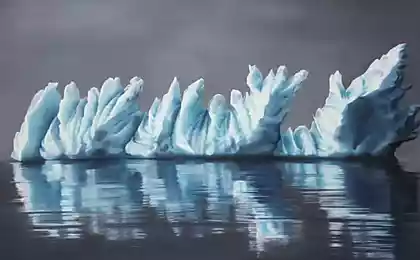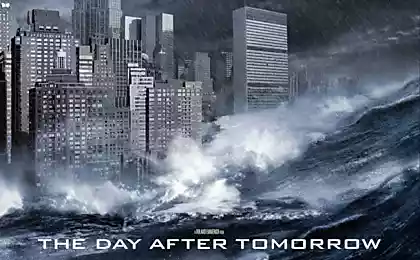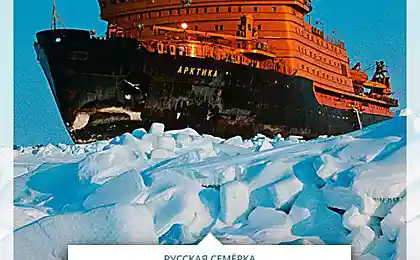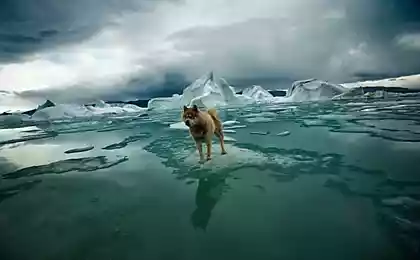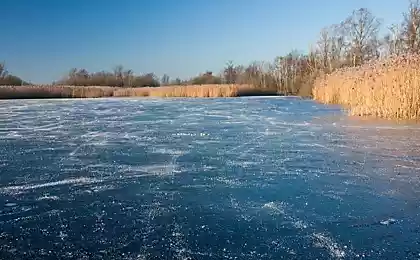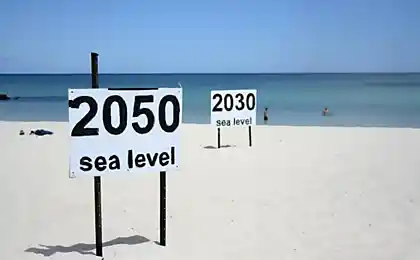604
The Arctic may soon lose the ice - for the first time in the last 100 000 years
Cambridge Professor Peter Uedems [Peter Wadhams] argues that in this year or next years the Arctic could be completely free of ice, which has not happened in the last 100 thousand years. According to preliminary data obtained from meteorological satellites, in the Arctic on June 1 there was a total of 11, 1 million square kilometers sea ice, which is the minimum value for this time of year.
Professor Peter Uedems - the head of the research group of the polar regions of the oceans at the University of Cambridge. It uses the data received from satellite DMSP F-18, and the provision of state research center of the snow and ice USA. The center conducts research Earth Cryosphere - snow, ice, glaciers, and other natural phenomena, occurring at low temperatures
. The area of ice recorded in June, less than the average of 1, 5 million square km - About one third of the area of the entire European Union. Uedems argues that what is happening confirms the predictions made four years ago.
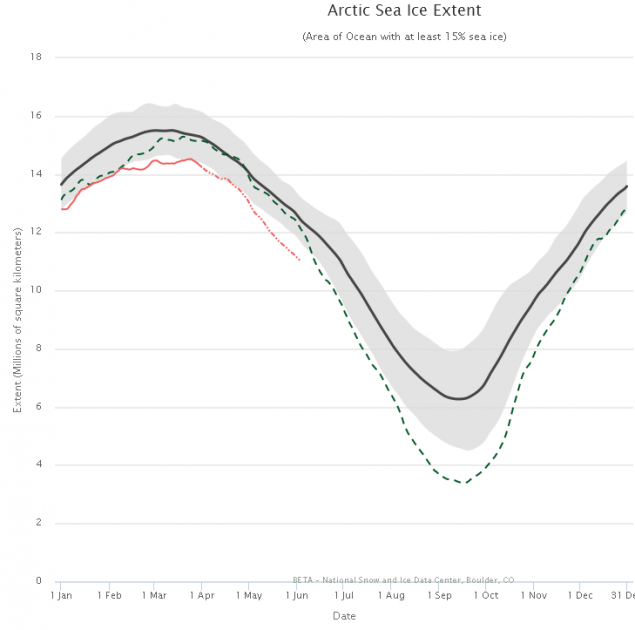
solid black line - the average area of ice over the last 30 years; gray area - the standard deviation; discontinuous green - data for the year 2012; Red - Current Year (dotted data - preliminary)
. "My prediction remains unchanged: the Arctic ice may disappear - more specifically, its area can be less than a million square kilometers - by September of this year. Even if the ice disappears completely, its area will be a record low. Definitely it will be less than the current record in the 3, 4 million square kilometers. There is a pretty good chance that we will see an area less than one million -. If not this year, then next »
The disappearance of ice suggests that the central part of the Arctic and the North Pole will be ice-free. Most of the ice stored within the Arctic Circle, will be concentrated on the islands of northern Canada. Last time such a picture on the planet, according to scientists, can be observed from 100 to 120 thousand years ago.
Also, the Arctic Ocean in the north of Russia is almost free of ice, and coastal seas have become much warmer than usual. Apparently, soon this road will be navigable year round, which will open new opportunities for maritime transport.
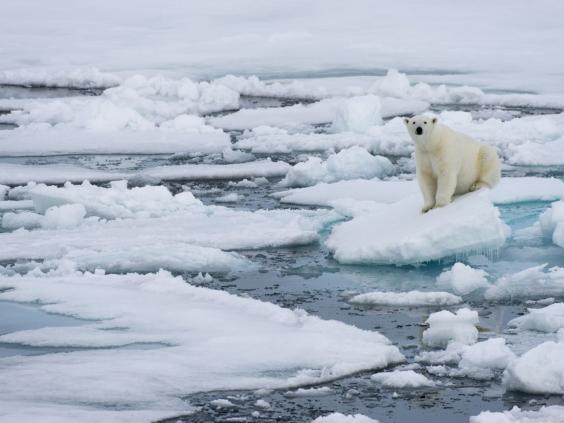
Scientists also point out that the methane that accumulates at the bottom of the sea, into the atmosphere at an alarming rate, and in just five years is able to raise the average temperature at 0, 6 ° C. Peter Uedems calls this perspective "abrupt global warming" and regards it as "threatening».
In addition to the release of methane reduction in ice area will contribute to the acceleration of global warming and other means - the planet's surface becomes darker, and therefore reflects less sunlight
. Professor [Jennifer Francis] skeptical about the allegations very imminent demise of Arctic ice and believes that this could happen by around 2030-2050 years. But she agreed that the Arctic is something "very unusual", and that in September we will be able to really observe a new record minimum ice area.
One of the leading climate experts, Dr. Peter Gleick [Peter Gleick], yet can neither confirm nor deny the allegations Uedemsa. He notes that in the case of erroneous predictions in public opinion appears unnecessary skepticism about climate scientists.
However, he confirms that the growth temperature took alarming proportions, and the decrease in the amount of ice in the Arctic will have serious negative changes in the ecosystem and the weather. "We're on the train, which appeared out of control, and although scientists have trumpeted the alarm, politicians continue to throw coal into the furnace," - says Gleick
. Source: geektimes.ru/post/276832/






